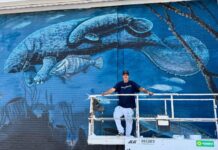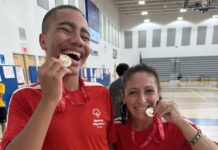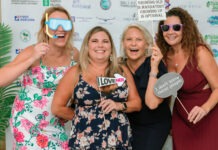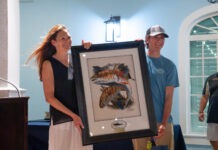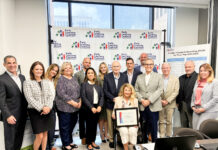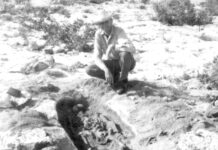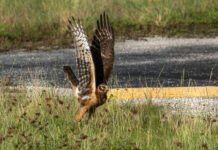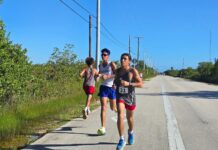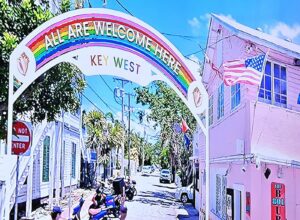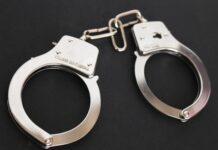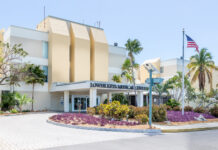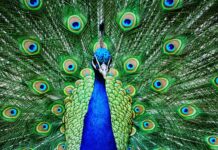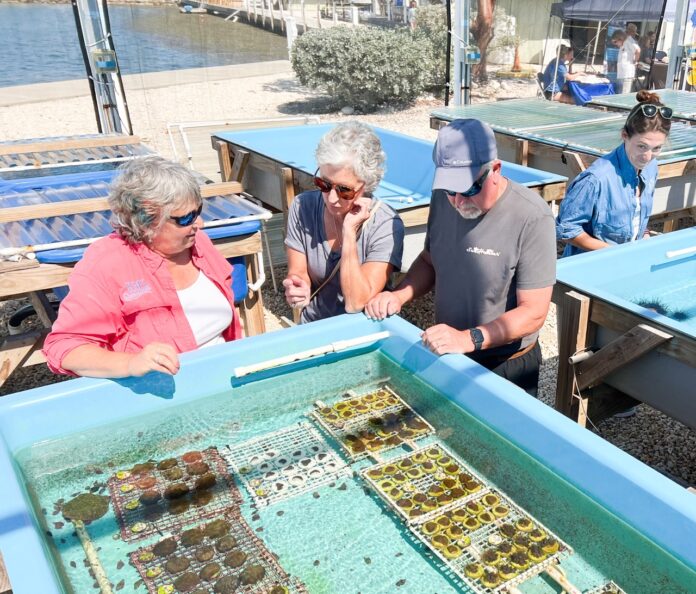
Keys Marine Laboratory (KML) welcomed more than 200 visitors to its annual open house on March 1, showcasing the work KML facilitates for coral reef restoration and research.
Attendees engaged in hands-on demonstrations, including lionfish dissection, coral fragging, sponge filtration and guided tours of seawater systems housing sponge and coral restoration, long-spined sea urchin aquaculture and more.
“It was a pleasure to welcome everyone to KML’s campus and highlight our collaborations with local, statewide and national partners,” said Cindy Lewis, director of Keys Marine Laboratory. “Our scientific community, including undergraduate and graduate students, faculty and researchers, has been integral to KML since we opened 34 years ago.
“We are looking forward to our annual open house where we can share our unique offerings with the Keys community and beyond, highlighting KML as an unrecognized treasure in the Middle Keys that is making a significant impact on the marine ecosystem,” Lewis said.
KML’s team of five scientists led tours and shared information on the year-round visiting academic undergraduate marine biology and ecology classes, master’s and doctoral research programs. The laboratory is a hub for a variety of projects, including long-term seasonal ciguatera monitoring and sampling, long-term sawfish population monitoring and tagging, seagrass bed assessments and restoration, sponge spawning and restoration, long spined urchin aquaculture and grow out, coral spawning and disease research, and ocean current monitoring.
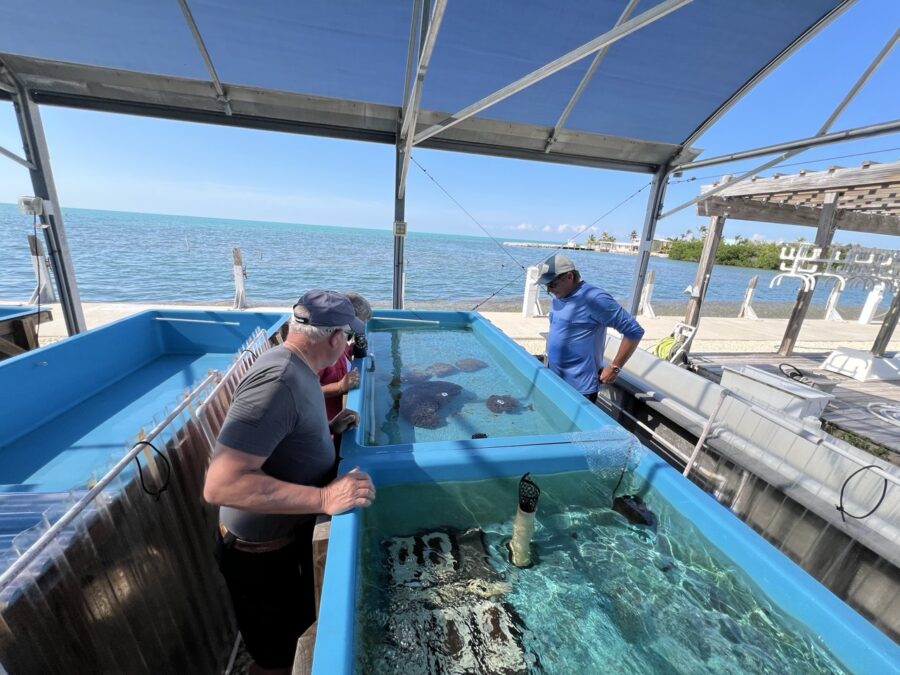
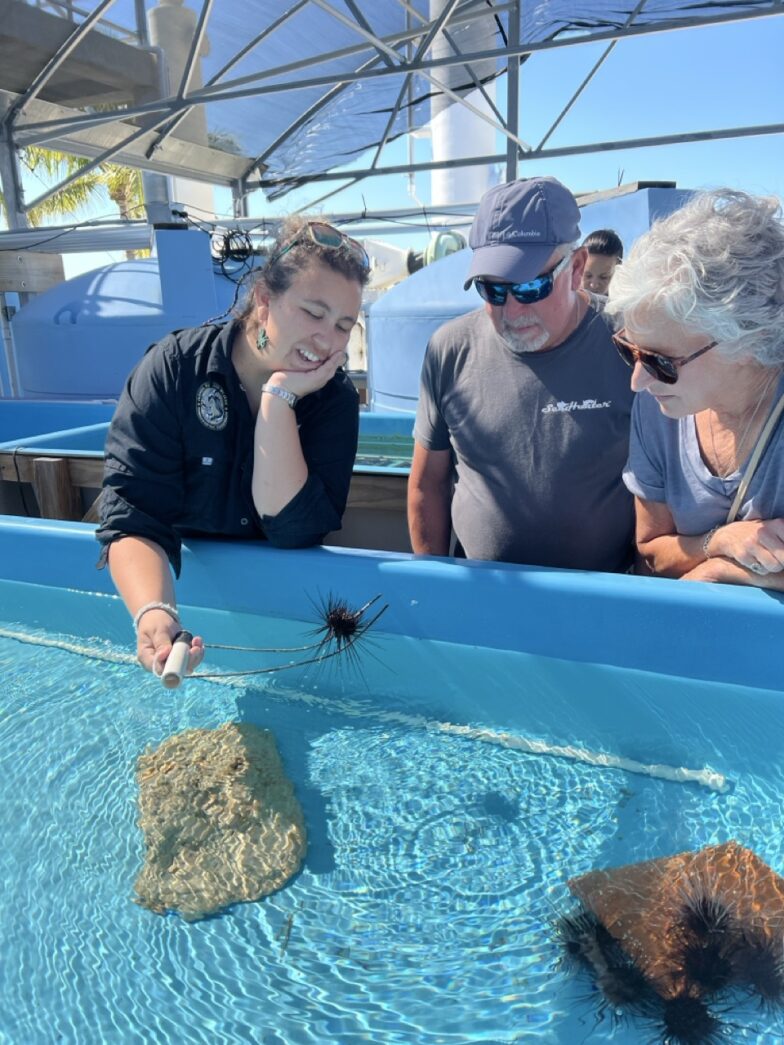
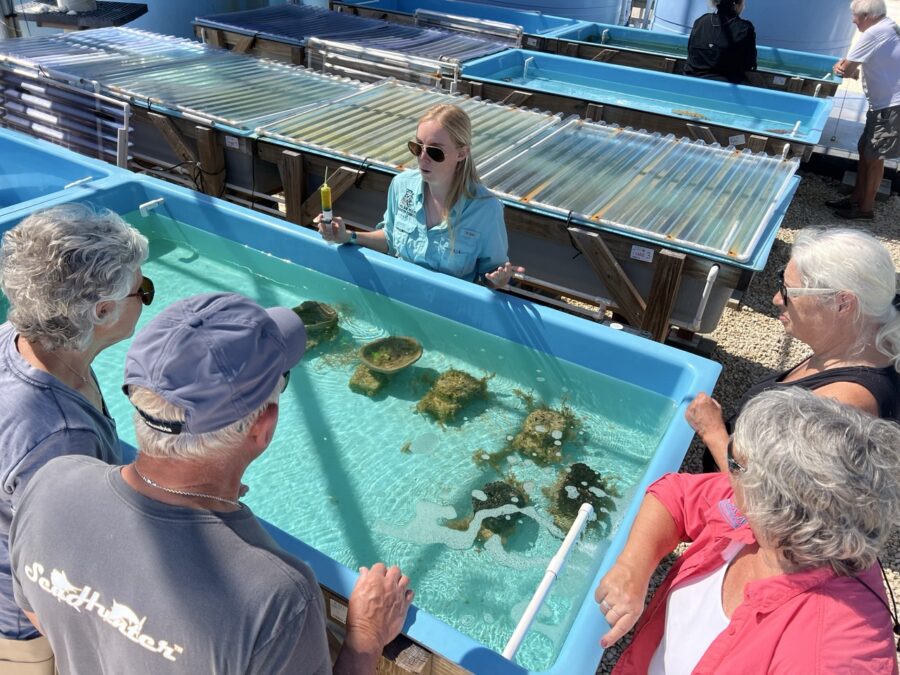
Established in 1991, KML operates on 8 acres surrounded by the Florida Keys National Marine Sanctuary, supporting research across subtropical/tropical marine and terrestrial ecosystems. Managed by the Florida Institute of Oceanography at the University of South Florida, KML collaborates with a consortium of 33 public and private institutions, state and federal agencies and marine research organizations, serving nearly 800 students and researchers annually.
The facility has over 60 temperature-controlled seawater tables and tanks, four near-shore research vessels, and a team of administrative, operations and science staff.
The lab is launching a $60 million capital campaign aimed at modernizing and expanding facilities to address the evolving environmental challenges facing the oceans. This initiative will include the construction of new storm-resistant and additional on-site housing, laboratories and classrooms.
This year’s event featured nine partners: Florida Institute of Oceanography, Florida Keys National Marine Sanctuary, Reef Renewal USA, Coral Restoration Foundation, I.CARE, Florida Fish & Wildlife Research Institute, REEF, Surfrider Foundation Florida Keys and Designer Ecosystems/ReefStarter.





